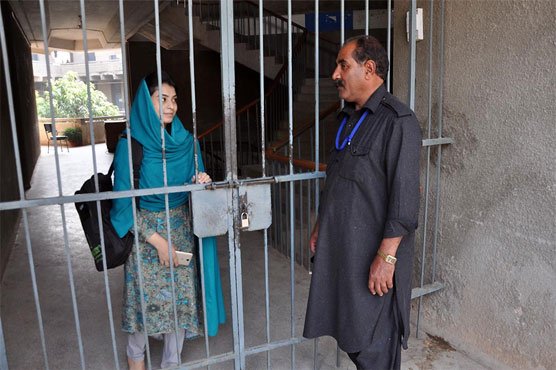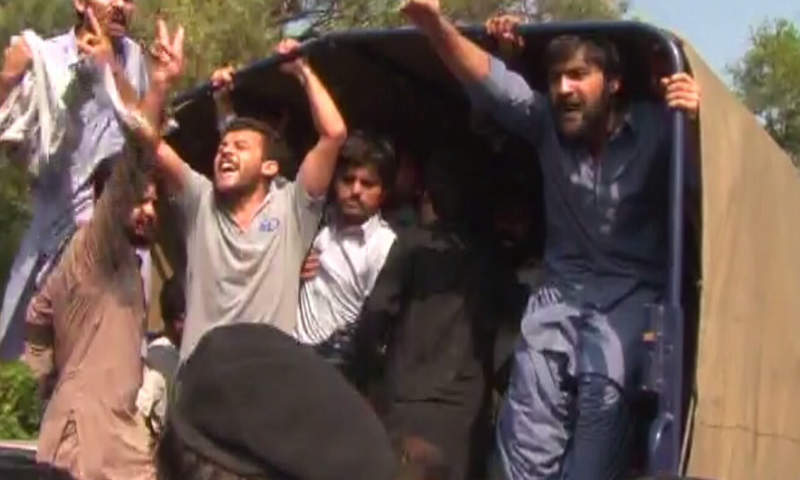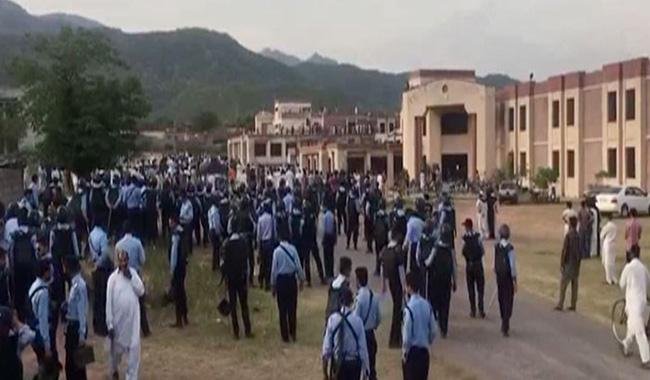Islamabad, July 30, 2025 — A large-scale operation was carried out by Islamabad Police on Tuesday morning to vacate the remaining hostels at Quaid-e-Azam University (QAU), following repeated student refusals to leave the premises despite multiple official notices. The operation resulted in the removal and temporary detention of over 55 students who had continued to occupy hostels No. 6, 8, 9, and 11, even after the university’s final eviction deadline had passed.
According to university authorities, the hostels had been officially scheduled to close on July 13 for necessary annual renovation and maintenance. The university administration cited serious concerns over deteriorating infrastructure, electricity and plumbing misuse, and increased financial pressure due to unregulated hostel occupancy during the summer break. Students were reportedly given multiple verbal and written notices to vacate. However, a group of students remained defiant, leading the administration to formally request assistance from the Islamabad Police to carry out the eviction.
On Tuesday, police, along with university and district officials, entered the premises in the early hours and began removing students who refused to comply. According to police reports, the operation was conducted peacefully for the most part, and only a limited number of students offered resistance. Around 55 to 60 students were taken into custody and moved to the Secretariat Police Station for identification and further action, based on complaints filed by the university administration.
The university maintained that the operation was fully legal and backed by recent rulings from the Islamabad High Court, which upheld the university’s authority under the Quaid-e-Azam University Act 1973 to manage internal matters, including hostel usage. The court had earlier dismissed a petition filed by students seeking to stay in hostels during the maintenance period, reinforcing the administration’s right to proceed with the eviction process.
Despite these legal proceedings, the action has sparked criticism from human rights activists, student organizations, and some political figures. Human rights lawyer Imaan Zainab Mazari claimed on social media that up to 72 students were held without proper FIRs and alleged that even family members and lawyers were being denied access to detainees or legal documentation. Former senator Afrasiab Khattak condemned the action as excessive, while academics such as Dr. Taimur Rahman questioned the wisdom of criminalizing students who were preparing for competitive exams and had no alternative accommodation. Zulfikar Ali Bhutto Jr. also expressed solidarity with the affected students, stating that institutions should prioritize student welfare over administrative convenience.
In response to such criticisms, the university clarified that the extended presence of students in hostels was not only unauthorized but was also straining university resources. The administration noted that some hostels had been occupied by individuals who were not currently enrolled, and that there had been misuse of electricity and water lines, illegal wiring, and unauthorized room extensions, which compromised safety and maintenance budgets.
As of now, the hostels have been successfully vacated, and renovation work is expected to begin immediately. While the university regards the operation as a necessary administrative step to preserve institutional integrity and prepare for the upcoming academic session, critics argue that the incident reflects a deeper need for dialogue, policy clarity, and student engagement in decision-making processes.
The fate of the detained students and any potential legal proceedings remains uncertain, as civil society groups continue to demand transparency and accountability from both the university and police authorities. The operation has opened a wider conversation about campus rights, governance, and the fine line between institutional order and student freedom.























